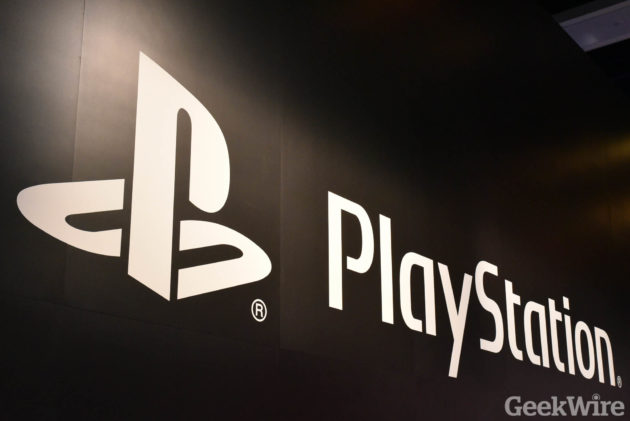
Next week, Sony reportedly intends to announce a service to compete with Microsoft’s Game Pass, which has the potential to move the “console wars” into a new, subscription-based era.
As per a Friday-morning report in Bloomberg, Sony could make an official announcement regarding its new service, codenamed “Spartacus,” as soon as next week.
Reportedly, “Spartacus” will feature multiple tiers for members, which offer a Game Pass-esque sampling of both current-generation games and an assortment of titles from the PlayStation back catalogue, potentially including titles from the PlayStation 2 and PlayStation Portable. On the most expensive tier, users also get extended game demos and streaming options.
Sony currently offers two different subscription services for PlayStation users. PlayStation Plus ($9.99/month) unlocks multiplayer access for PlayStation games, exclusive discounts, and gives subscribers three free games per month. PlayStation Now ($9.99/month) is an on-demand service that allows users to stream from Sony’s library of PS2, PS3, and PS4 games.
“Spartacus,” as per the Bloomberg piece, is a combination of the two. There’s currently no word on how the new service will be priced, or whether it will replace either or both of the existing services.

By way of comparison, Microsoft’s Xbox Game Pass offers a $9.99/month tier that’s specific to either PC or console, which always includes day-one access to new games from Xbox Game Studios, such as Halo Infinite. The $14.99/month Ultimate tier bundles both platforms together with Xbox Live Gold, which offers free games every month and online multiplayer for console users, and third-party developer Electronic Arts’ EA Play service.
Head to head, the two services represent an interesting look into Sony and Microsoft’s relative priorities.
Sony, of course, is well ahead of Microsoft on per-unit sales, with some sources estimating that both the PlayStation 4 and 5 are comfortably selling double the units as the Xbox. It’s running the traditional games industry playbook.
The Xbox Game Pass, on the other hand, is estimated by third-party analysts — Microsoft hasn’t released its official numbers for years — to have at least 25 million subscribers, and according to Microsoft’s E3 2021 presentation, games that are included on the pass get a substantial sales boost.
The Xbox is well behind PlayStation in overall market penetration, but is increasingly abandoning the typical gaming sales model in favor of a more Netflix-ish arrangement. Whatever’s happening behind the scenes, Microsoft has previously reported that its gaming revenue is growing, and its recent moves like the Activision Blizzard acquisition are indicative that it plans to continue the process.
Due to their increasingly different approaches, it’s difficult to see Sony and Microsoft as traditionally competitive, but with moves like “Spartacus” and its purchase of Bungie, Sony clearly feels some pressure.

The big question, to my mind, is how far Sony is prepared to go here. There are more gaming subscription services than a lot of fans realize, many of which use a similar “on demand” setup to Game Pass, or at least offer free games every month. This includes Amazon Luna, Google Stadia, Humble Choice, nVidia’s GeForce Now, and on a more idiosyncratic level, Nintendo Switch Online.
What elevates the Xbox Game Pass above most of them is Microsoft putting its first-party games on the service, such as Halo Infinite, and doing so at launch. It’s the kind of move that could’ve easily backfired on Microsoft by cannibalizing its own sales, but it seems to have successfully translated into making the Game Pass into a hard deal for average players to pass up, especially with big upcoming games like Starfield.
“Due to their increasingly different approaches, it’s difficult to see Sony and Microsoft as traditionally competitive, but with moves like ‘Spartacus’ and its purchase of Bungie, Sony clearly feels some pressure.”
There’s currently no indication that Sony will do anything even remotely similar, but instead, may use “Spartacus” to leverage its back catalogue. Sony’s PlayStation project is only seven years older than the Xbox, but it’s gone through a couple of distinct periods of industry dominance in that time, particularly in Japan, and Sony has made big investments in first-party development since the beginning.
The result is that Sony has a massive library to draw on, in just about any genre, some of which have been dead and buried for years. It could make a lot of money in a relative hurry simply through leveraging nostalgia, especially if it uncorked some of the out-of-print games for the original PlayStation, or at least reopened the digital PSOne Classics collection that’s still inexplicably locked onto the PlayStation 3’s version of the storefront.
The question, though, is whether Sony is willing to go as far as Microsoft did and add its first-party games as day-one incentives for “Spartacus.” It’s got no particular overall reason to run that risk, when PlayStation exclusives like God of War comfortably sell in the millions already. On the other hand, there are plenty of smaller first-party games from Sony’s studios that might see greater success on a Game Pass clone than they do as standalone software.
As a corollary, the current glut of subscription services and, to a lesser extent, flash sales, is having an interesting knock-on effect on how games are made, marketed, and targeted.
To some extent, you’re already seeing the rebirth of what, 15 years ago, I’d have called a “good rental”: games that aren’t made as a service, or as a theoretically eternal multiplayer experience, but instead, are made to be played and completed over the course of a single day, week, or weekend. The new open-world supernatural game Ghostwire: Tokyo is a useful example, as is the recent single-player shooter Shadow Warrior 3.
If Sony successfully sets up its own take on the basic Game Pass concept, you can expect to see that style of game make a comeback, as opposed to the current dominance of big, open-world, 100-hour experiences like Elden Ring. We could be seeing the start of a new, influential environment for modern video game publishing.



